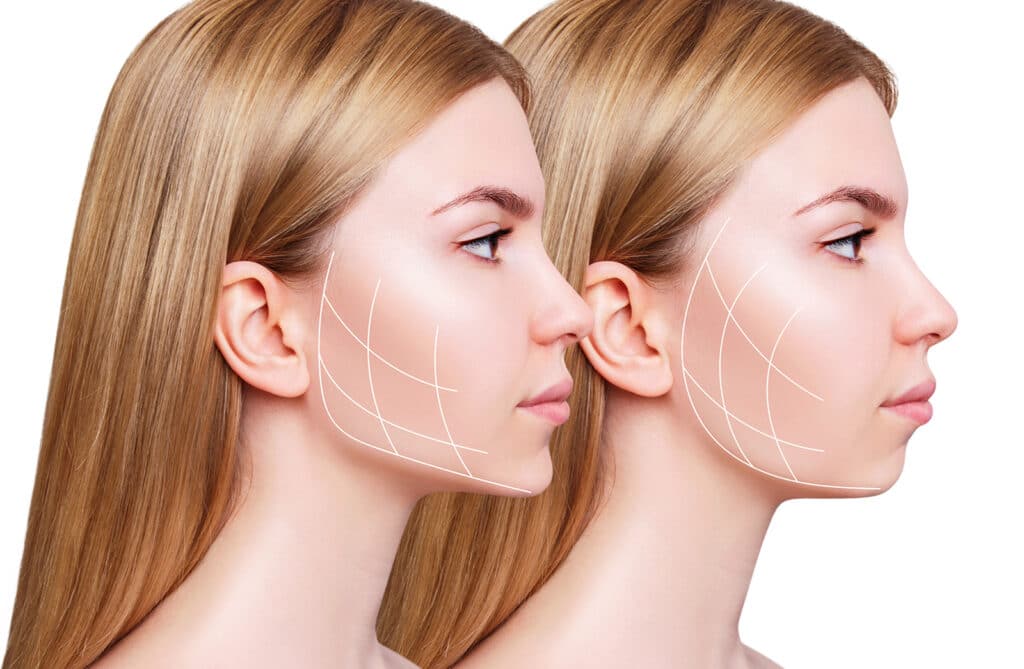Advanced Jaw Surgery Solutions in Boulder, Brighton, and Denver, CO

Orthognathic Surgery (Corrective Jaw Surgery)
Orthognathic surgery (also called Corrective Jaw Surgery) is used to correct many dental and skeletal irregularities, mostly relating to the misalignment of the teeth and jaws. The main goals of orthognathic surgery include an enlarged airway to improve breathing and a correct bite to minimize pain and improve aesthetics.
Below are some conditions that may require orthognathic surgery:
- Protruding jaw (maxillary prognathism or mandibular prognathism)
- Inability to make the lips meet naturally
- Difficulty chewing or swallowing
- Chronic jaw pain and headache
- Sleep apnea
- Birth defects
- Open bite (when your mouth is closed, but there is a space between the upper and lower teeth)
Dr. Matthew Schacht will probably work closely with your orthodontist, as braces will usually need to be worn sometime before or after surgery (in some cases, both before and after surgery).
Types Of Jaw Surgery
- Maxillary Osteotomy – A maxillary osteotomy may be performed in order to correct a crossbite, an open bite, and upper jaw recession. During your procedure, Dr. Matthew Schacht will cut the bone above your teeth (beneath your eyes), so that your entire top jaw can be moved forward as one piece. Once it’s in the proper place, the bone will be held in place by tiny screws.
- Mandibular Osteotomy – This type of orthognathic surgery is performed to correct lower jaw recession. During this procedure, Dr. Schacht will make cuts behind your molars and lengthwise, in order for the jawbone to move as one piece. Once in its proper position, screws will be used to hold the jawbone in place until it can heal.
- Genioplasty – If the lower jaw is receded severely enough, a deficient chin can sometimes go along with it. The deficient chin will be fixed with a procedure called a genioplasty. During this procedure, Dr. Schacht will cut the chin bone and secure it in a proper position. This procedure can be performed at the same time as the other jaw surgeries.
Benefits Of Corrective Jaw Surgery
Below are a few of the benefits of receiving corrective jaw surgery:
- Restore symmetry to the lower and middle facial features
- Improve smiles that are too “gummy”
- Reduces the risk of TMJ (temporomandibular joint disorder) and other common jaw problems
- Helps with sleep apnea
- Can make it easier to chew and bite food
- Can make it easier to speak
To learn more about corrective jaw surgery, please contact Denver Oral & Maxillofacial Surgery.